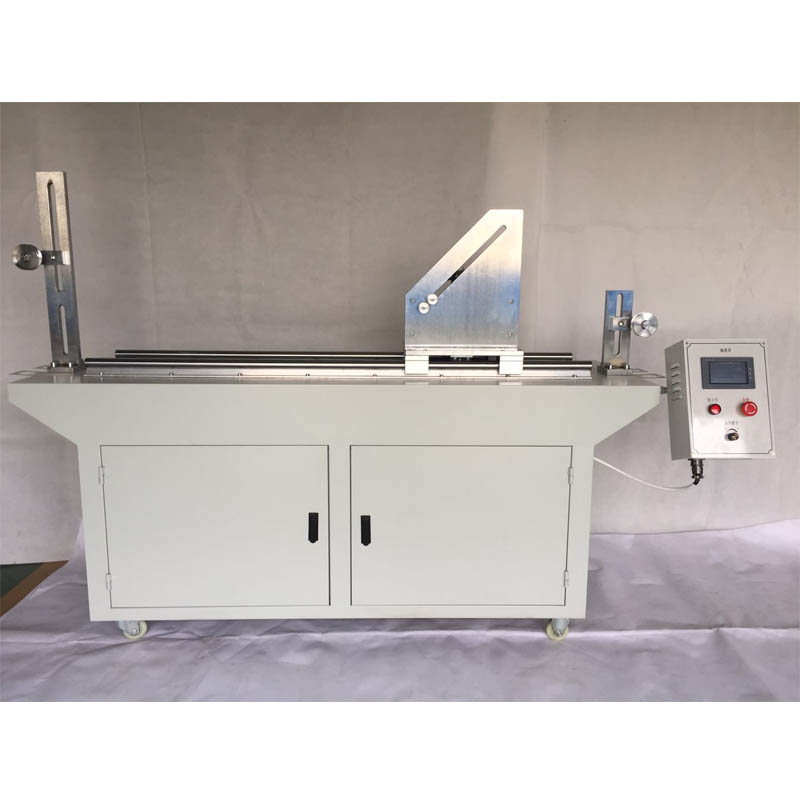China's Advanced Universal Tensile Testing Machine for Quality Assurance and Material Strength Evaluation
China Universal Tensile Testing Machine Advancements and Applications
In the realm of material testing, the China universal tensile testing machine stands out as a vital instrument in evaluating the mechanical properties of various materials. This equipment enables engineers and researchers to measure the tensile strength, elongation, and other critical parameters of materials like metals, plastics, and composites. As industries continue to evolve, the significance of precise testing equipment grows, making universal tensile testing machines indispensable across numerous sectors.
China Universal Tensile Testing Machine Advancements and Applications
One of the defining features of Chinese universal tensile testing machines is their adaptability to various material types and testing standards. They are designed to meet international testing standards, such as ASTM, ISO, and GB, ensuring that the results are reliable and comparable across borders. This adaptability has bolstered the growth of China's manufacturing and research sectors, as organizations can ensure their materials meet both domestic and international quality requirements.
china universal tensile testing machine

Moreover, the rapid advancements in technology have significantly enhanced the capabilities of these machines. Modern tensile testing machines are equipped with advanced software that allows for detailed analysis of the collected data. Users can generate comprehensive reports, visualize stress-strain curves, and assess various mechanical properties, including yield strength, ultimate tensile strength, and modulus of elasticity. The integration of automation has further streamlined the testing process, reducing human error and increasing throughput.
The applications of universal tensile testing machines are vast and varied. In the automotive and aerospace industries, they are used to test the strength and flexibility of materials used in manufacturing parts that must withstand rigorous conditions. In construction, these machines help evaluate the properties of metals and composites used in structures, ensuring safety and compliance with regulatory standards. Similarly, the plastics industry relies on tensile testing to assess the durability and resistance of materials, vital for producing long-lasting products.
The growing emphasis on quality assurance and stringent regulatory frameworks has propelled the demand for universal tensile testing machines. As industries strive to enhance product quality and ensure safety, these machines play a critical role in maintaining standards. Additionally, with the rise of new materials, including biodegradable plastics and advanced composites, the need for rigorous testing will continue to increase, driving innovations in tensile testing technology.
In conclusion, the China universal tensile testing machine represents a convergence of tradition and innovation in material testing. With their ability to adapt to various standards and material types, along with advanced technological features, these machines are essential tools in modern engineering and research. As industries continue to develop more complex materials and products, the significance of accurate and efficient tensile testing will remain paramount, ensuring safety, reliability, and performance in various applications. The continual evolution of these testing machines will undoubtedly play a pivotal role in shaping the future of material science and engineering in China and beyond.
-
Why the Conductor Resistance Constant Temperature Measurement Machine Redefines Precision
NewsJun.20,2025
-
Reliable Testing Starts Here: Why the High Insulation Resistance Measuring Instrument Is a Must-Have
NewsJun.20,2025
-
Flexible Cable Flexing Test Equipment: The Precision Standard for Cable Durability and Performance Testing
NewsJun.20,2025
-
Digital Measurement Projector: Precision Visualization for Modern Manufacturing
NewsJun.20,2025
-
Computer Control Electronic Tensile Tester: Precision and Power for the Modern Metal Industry
NewsJun.20,2025
-
Cable Spark Tester: Your Ultimate Insulation Assurance for Wire and Cable Testing
NewsJun.20,2025
 Copyright © 2025 Hebei Fangyuan Instrument & Equipment Co.,Ltd. All Rights Reserved. Sitemap | Privacy Policy
Copyright © 2025 Hebei Fangyuan Instrument & Equipment Co.,Ltd. All Rights Reserved. Sitemap | Privacy Policy
